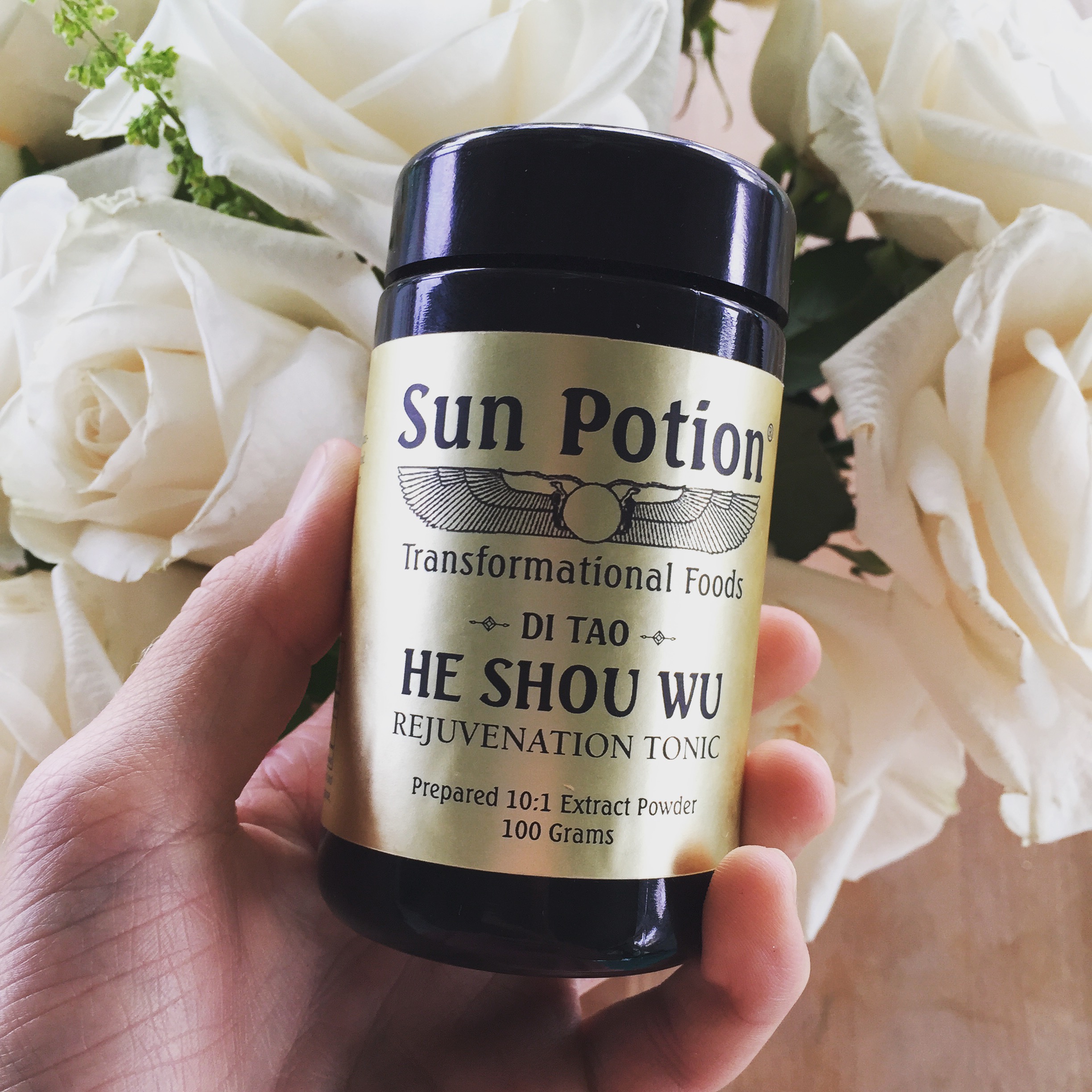My Longtime Friend, He Shou Wu
“If we could sniff or swallow something that would, for five or six hours each day, abolish our solitude as individuals, atone us with our fellows in a glowing exaltation of affection and make life in all its aspects seem not only worth living, but divinely beautiful and significant, and if this heavenly, world-transfiguring drug were of such a kind that we could wake up next morning with a clear head and an undamaged constitution — then, it seems to me, all our problems (and not merely the one small problem of discovering a novel pleasure) would be wholly solved and earth would become paradise.”
It’s obvious to me that Huxley is referring to He Shou Wu.
Everyone’s on drugs. The definition of drug is so loose, I think everything is a drug. According to “Dictionary” on my mac, a drug is a “substance which has a physiological effect when ingested or otherwise introduced into the body.” I went to school for psychology, among other things, because one day it hit me, everything we ingest is psychotropic, we may just not notice it. In the health community, I always hear “let food be thy medicine and medicine be thy food,” but I think what people don’t understand is, today’s version of store-bought spinach is not medicine, and not really food. Don’t get me wrong, spinach is great, but it ain’t what it used to be. We have to go back to the ur-food. Food grown in the same environment with which we live, that can thrive with little interference from us. The problem with that is that we aren’t even suited to our environment. Maybe it’s because we ate weak food!
One of my top foods/medicines is He Shou Wu (Polygonum multiflorum, Chinese Knotweed). In case you don’t know the story, it’s about this older guy, Mr. He. He was upset that his hair was gray, he had no kids, was feeling less than optimal and was approaching 60. There are several versions of the story, this is my take. So he was feeling weak, and was bitching around town. Someone said “here, eat this plant,” so he did. His hair returned to black, his vitality increased, went on to father several children and lived to be like 150 years old! The name “He Shou Wu” loosely translates to “Mr. He’s Black Hair.”
I don’t know exactly why he shou wu is one of my favorites, but I can speculate. It’s a restorative, yin jing herb. I’m all about that bass-ic yin. I like relaxing, I like breathing, I dislike excessive exertion, I dislike confrontation. He shou wu is nourishing to the liver and kidneys. It helps to cultivate strength, centeredness and dark hair (I’m still waiting on this one). I find it keeps me calm and centered.
He shou wu fits the conventional definition of a drug. It’s one of the most potent publicly available MAOI-Bs. MAOI stands for mono-amine oxidase inhibitor. That means they slow the breakdown of monoamine neurotransmitters. The “B” signifies that it’s not MAOI-A. MAOI-A and MAOI-B work on different types of monoamines. "A" primarily takes care of serotonin, dopamine and noradrenaline, "B" works mostly on dopamine and phenethylamine (PEA). Keep this in mind next time you’re planning a tonic herb latte! Interesting side-note, Theobroma cacao contains MAOI-Bs and PEA!
When you’re looking to buy He shou wu, there are a few things to look for. He shou wu is native to South Central China. When you see herbs labeled as “di tao,” it means the plant material is sourced from its native region. He shou wu should also be prepared. Generally, it’s cooked down with black beans. Black is the color representing Jing energy. This process takes away a lot of the laxative effect of the raw root. My understanding (let me know if I’m wrong) is that prepared he shou wu is a tonic, and unprepared is more medicinal, meaning it has it has value, but under more stringent circumstances. I think the cooking process breaks down elements that we don’t want, while forming some that we do. Those are the most important things I can think of. Less important is deciding whether you want the actual root or an extract. I enjoy both. He shou wu tea has a really interesting resiny flavor. I notice that good extracts usually have the sticky-resiny quality when mixed with a liquid, which I like.
I love Sun Potion’s products. I’ve gotten to know Scott and Nitsa, but even before that, I was hooked on their stuff. I knew it was great before I even tried it! I was at Erewhon and saw my favorite herbs in Miron glass. Miron glass is not cheap, so I knew someone would only use it to hold something very valuable. I was right! Shortly after I placed my first online order, I emailed to ask how their products are made. Scott wrote me back saying that most are cold water extracts. The material is mixed with water, and pressurized. The pressure is then quickly released. This is repeated several times, creating a cold water concentrate. Some of the extracts are sprayed through hot air, which makes the extracts dissolve easily in water. Some are sprayed back into the original whole plant powder. They don’t use maltodextrin in any of their products.
Here is what I’m currently drinking:
- 200mL raw coconut water
- 200mL of warm coffee brewed with distilled water
- 1/2t Pine Pollen
- 1/2t Eucommia Bark
- 1/2t He Shou Wu
I mixed the herbs with the coconut water, and poured the coffee over. Coffee is a stimulant, which to me means it’s a delivery system. It opens your body up and gets things moving. It’s a perfect time to introduce a bunch of tonic herbs. I think of the herbs as carrying little packets of information. When I drink coffee and open myself up, those little packets have many more sites to “plug in” to my body.
I’ll do a post all about coffee in the future. I absolutely love coffee, and have as long as I can remember. But I have to be careful, it can easily be too much for me. It’s nice having it as a weekend ritual.
I hope you enjoyed!



